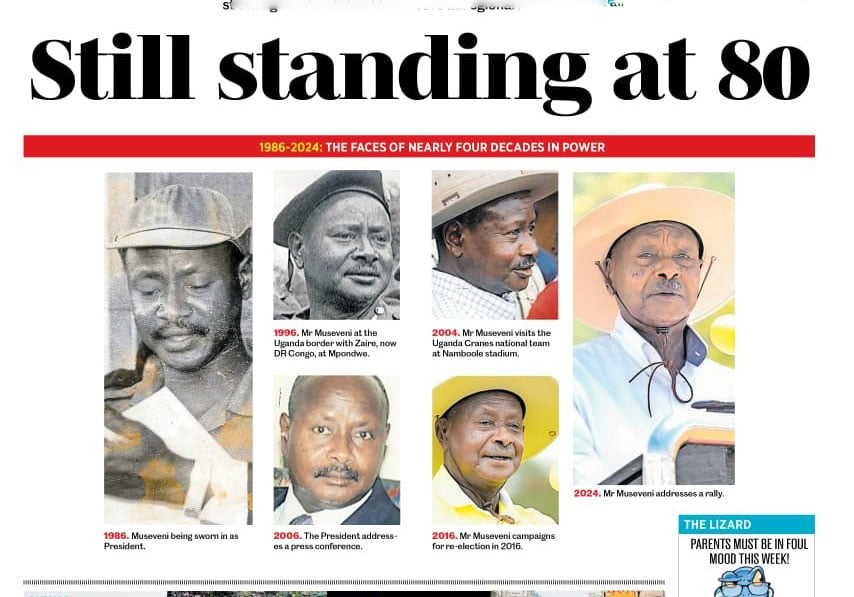Prime
President should let technocrats work, fire them if they fail – not try to do their work

Author: Daniel K Kalinaki. PHOTO/FILE.
What you need to know:
The quality of your vision in 1997 doesn’t matter if you can’t deliver it 25 years later. As any good CEO knows, execution eats strategy for breakfast. Will someone tell the President?
It is 1997 and you are the CEO of a large organisation, a position you have held for just over 10 years. You have discovered that you are either losing money on one of your key products or making very thin margins.
If you improve the product a bit and package it better, you can triple your revenues. And as the product is one of the largest parts of your inventory, tripling your revenues off that item would significantly grow the overall business.
What would you do? You’d probably set up a crack team involving the product, sales and marketing folks, and lean on finance to make the necessary investments into the idea. You would set very specific targets and demand regular progress reports.
In addition, you would rally the entire organisation around the initiative. Employees who do not see the vision, or who don’t throw their weight behind it would have to be retrained or retrenched.
What you wouldn’t do is to point out, 25 years later, why the organisation needs to add value to this product to grow its revenue. The reason you wouldn’t be able to do that is that you would have long been fired from the CEO position for failing to deliver on the plan. Yet that is what appears to have happened from a trove of documents President Museveni shared last week as part of a 27-page missive in response to a decision by the World Bank to suspend new funding programmes due to their concerns about the Anti-Homosexuality Act.
I think the West, generally, has misread the room and, in minoring in the major and majoring in the minor, undermined their own standing as well as the wider cause of deepening democracy – but that is an argument to follow in the coming weeks.
What stood out from the toys falling out of the presidential pram was a 1997 letter to then-Finance minister, Mayanja Nkangi, in which President Museveni correctly pointed out the foolishness of exporting barely processed coffee and importing it back at much higher prices. Why is the President still lamenting about it a quarter of a century and several finance ministers later?
Breaking into world markets is, admittedly, not an easy thing and it is not as if the government has done nothing. But while coffee volumes have increased significantly, the value obtained remains low and the issues raised in 1997 remain unresolved.
One problem is that the government generally, and the President in particular, are notoriously bad at picking winners. Enrica Pinetti, the flavour of the past decade, and to whom the deep state is still working quietly to hand effective control of the coffee industry, joins a long list of so-called “investors” who have received public funds with much fanfare, only to disappear into thin air. Remember the Agoa girls? The Tororo fertiliser? The bottomless pit that is Atiak sugar? Or the alphabet soup of dodgy deals signed and served up around Chogm? Alibaba and his 40 thieves have nothing on us!
The system flow is a systematic flaw. Genuine investors should work with lower-level bureaucrats to set up shop. Government’s role should be to ensure the metaverse is ideal for investment: cheap money, stable currency, low inflation, security, infrastructure and rule of law. Investors need not meet with the President, except maybe at ribbon-cutting for their factories if they are of strategic value.
Investors who come via State House, on the other hand, often include opportunists who use photos with the president to acquire free public land, mortgage it to banks to raise capital, then disappear. A few hang around, “lose money” until their tax exemptions expire, then leave.
So, while the President means well in wanting to attract investment, he should let the technocrats do their work, and fire them if they don’t – not try to do their work for them. It is hard to hold technocrats accountable when projects fail if the people who failed to deliver on them were sent to the technocrats by the President himself.
Freed of the burden of micro-management, the President would then focus on prioritising key deliverables, and driving accountability. The quality of your vision in 1997 doesn’t matter if you can’t deliver it 25 years later. As any good CEO knows, execution eats strategy for breakfast. Will someone tell the President?
Mr Kalinaki is a journalist and poor man’s freedom fighter.
[email protected]; @Kalinaki




